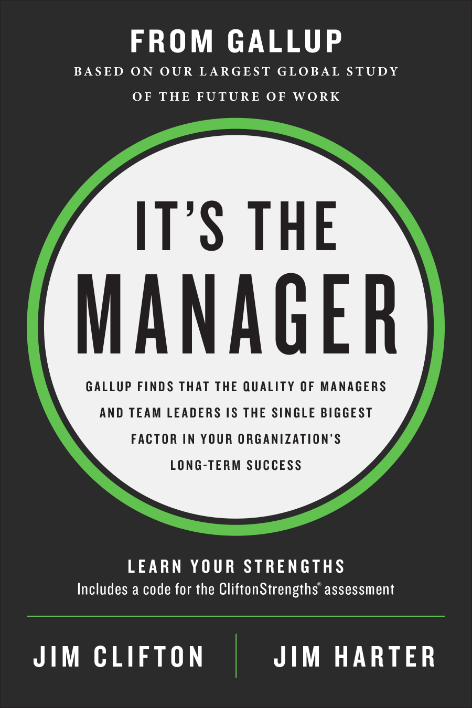Story Highlights
- Great managers can fortify engagement during M&As
- Look for the five elements of natural manager talent
- Help managers coach through turbulence
The weeks and months right after a merger -- the post-merger integration (PMI) phase -- is tumultuous, to say the least.
Marked by customer and market risks, talent risk, financial risk, reputational risk and a high failure rate -- one analysis shows that more than 60% of M&As destroy shareholder value -- merger worries occupy a lot of leaders' mind space in M&A situations.
What many leaders don't anticipate is a much less tangible risk: the potential damage to engagement and culture. Engagement is a vital sign in both the acquiring and the acquired companies. An engaged culture is a healthy, vibrant one, and it can significantly boost valuation -- highly engaged organizations outperform their peers by 147% in earnings per share. And the risk to engagement is real: Gallup research shows that 66% of U.S. employees are either not engaged or actively disengaged at work.
Meanwhile, the odds of success post-merger are roughly 50-50. To boost the success rate, leaders need to identify, recruit and engage great managers within the combined enterprise.
Managers constitute around 70% of the variance in engagement, and their contribution to engagement is indispensable during and after a merger. But first, it's important to ensure that managers are themselves engaged.
The majority are not -- only 35% in the U.S., about the same as U.S. employees in general -- but their commitment to the company can mean the difference between retaining your best talent or losing them overnight to your competitors after a merger. And a company's collective talent might be as important to its success as its product, technology, brand or intellectual property.
The odds of success post-merger are roughly 50-50. To boost the success rate, leaders need to identify, recruit and engage great managers.
'Acquihire' great managers, and then place them where they matter most.
Finding manager talent post-merger can become a hugely complex hiring exercise.
The PMI phase offers an opportunity to redraft the organizational structure and "acquihire" the managers you've already got, but position them better and empower them more. Gallup's research shows these are the traits to look for:
- Motivation: Will have the drive to achieve new goals in the merged enterprise.
- Work style: Will adapt to a new way of organizing work for efficient completion.
- Initiation: Will take innovative action and inspire others to succeed in a new reality.
- Collaboration: Will build quality partnerships in the merged enterprise.
- Thought process: Will solve problems through the assimilation of new information.
When it comes to selection, leaders will find that an objective and predictive assessment of key manager talent achieves better results. In fact, your best managers could well turn out to be your most effective recruiters after the merger -- hiring more great talent to come work for them.
Clarify your new purpose and what you expect from managers.
When you know who your managers are, make sure they know what you want. Only 36% of managers in Gallup's recent research on the manager experience could strongly agree that they had a clear job description -- and their job expectations evolve dramatically post-merger, while competing priorities or legacy systems can derail their performance. The unpredictable nature of a merger exacerbates the situation.
So give managers a realistic job preview during and after the merger. Outline new behaviors in detail and eliminate outdated expectations. Provide managers with a clear agenda for change and explain their role within that change. Gallup research shows that only four in 10 U.S. employees strongly agree that the mission or purpose of their company makes them feel their job is important -- so clarify your purpose and what makes the new company unique.
Managers must be encouraged to get involved, uncover new opportunities and gain new experiences. Especially in the first 100 days -- that's when a newly merged organization is most rife with new opportunities and initiatives that managers can maximize by joining task forces or initiatives. Push them to create new synergies within systems and processes in the combined enterprise. Encourage their mobility across functions, roles and geographies to expand their scope and enhance their development. Make it clear that their unique capacities are more valuable than they've ever been and that you intend to capitalize on them.
But also remember that managers have a lot to do -- 42% say they have multiple competing priorities and 30% say they have a lot of interruptions in their work, and that activity only ramps up exponentially during and after a merger. Managers are often at the center of that turmoil. Meanwhile, overactive rumor mills seed confusion and misdirection, putting managers in the role of mediator between leaders and employees.
Help managers stay focused on their strengths and the strengths of others.
During and after a merger, managers and their employees are often prompted to review their career and the direction of their personal growth. And their conclusions must be grim, as voluntary turnover hits 20% as soon as a merger is announced. Executive turnover is twice the average rate for a minimum of nine years after the deal is inked -- and Gallup research shows that the most talented employees are always the first to go.
That's a red alert: Managers are 11% less likely than other employees to strongly agree that they have the opportunity to do what they do best at work. Helping managers gain a deep understanding of their strengths could help them reorient their career trajectory, paving the way to greater focus, growth and opportunities in the merged enterprise.
Managers can also play a vital role in investing in the strengths of others. Managers who assume the role of a trusted adviser and coach seed hope, resilience and stability. But leaders who can't show their people a clear path forward, who can't reduce ambiguity, or who display fear or uncertainty will destabilize their followers -- often driving critical talent away.
So help your managers develop performance coaching abilities as they take on new post-merger responsibilities. Teach them how to provide ongoing feedback, regular check-ins, and continuous listening for teams navigating the PMI phase.
It's more than worth it. But first, you have to be prepared to do what it takes to get your manager hiring right, optimize their contributions and then make them part of your future.
If you are, lean into that decision before, during and after a merger. Let it dictate your choices, of which there will be many. Great managers might well save your M&A deal. They might even enhance post-merger valuation exponentially.
Develop managers who win during even the most tumultuous times:
- Learn how Gallup can help you attract managers with the highest potential for excellence.
- Supercharge manager development with Gallup's transformative workplace learning.
- Discover how It's the Manager equips your managers with 52 of Gallup's greatest discoveries from decades of research on the science of management -- breakthroughs that link to real business outcomes.





